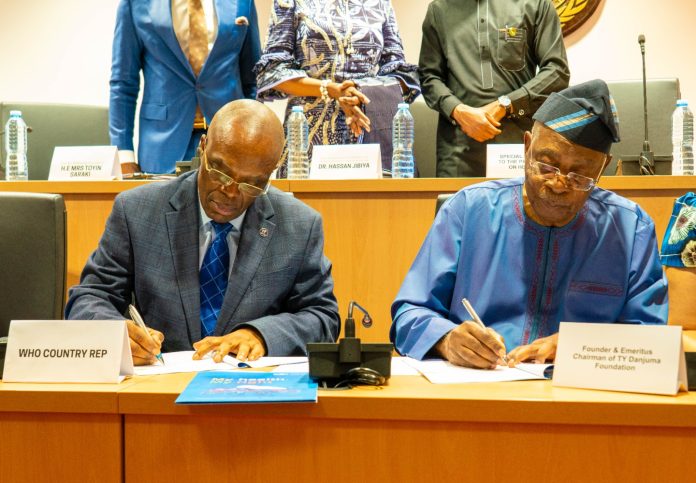…10-Year Partnership Targets Women, Children, and Vulnerable Groups in Three Pilot States
In a landmark move to strengthen Nigeria’s health system, the World Health Organization (WHO) and the TY Danjuma Foundation have signed a $2.26 million agreement to expand healthcare access for underserved communities across the country.
The 10-year partnership, formalized in Abuja, will fund WHO Nigeria’s country workplan through 2034. The initiative prioritizes integrated health services, with an initial focus on Taraba, Edo, and Enugu States—targeting women, children, and vulnerable populations.
The flexible funding model enables WHO to respond swiftly to emerging health needs while aligning with national priorities, a critical advantage amid global health financing constraints.
“We are proud to partner with WHO to advance Nigeria’s health priorities. This agreement reflects our commitment to improving lives and fostering sustainable development,” said Lt. Gen. Theophilus Danjuma (rtd), Founder and Chairman of the TY Danjuma Foundation.
Nigeria’s Coordinating Minister of Health and Social Welfare, Professor Muhammad Ali Pate, described the partnership as a strategic boost to equity-driven healthcare reforms.
“This agreement is a testament to Nigeria’s commitment to health equity. We welcome this collaboration as it will help deliver sustainable, high-impact health solutions to our people,” Pate said.
Dr. Chikwe Ihekweazu, WHO Acting Regional Director for Africa, praised the timing and structure of the support.
“This long-term, flexible funding could not be more timely. It enhances our ability to support national leadership and drive health impact where it matters most,” he said.
Dr. Walter Kazadi Mulombo, WHO Representative in Nigeria, described the collaboration as a “new benchmark for health partnerships in Nigeria,” adding that the initiative is expected to deliver measurable improvements in health outcomes for marginalized communities.
Founded in 2009, the TY Danjuma Foundation supports health and education projects through grassroots NGOs, particularly in Taraba and Edo States. The new partnership with WHO marks one of the largest philanthropic investments in Nigeria’s healthcare sector from a local foundation.
The signing ceremony brought together key players from government, civil society, traditional institutions, and the diplomatic corps, all aligned behind a shared vision to build a more resilient and inclusive healthcare system.
This partnership signals a growing shift toward sustainable, African-led solutions to health challenges—setting a strong precedent for future collaboration between international agencies and indigenous philanthropy.

